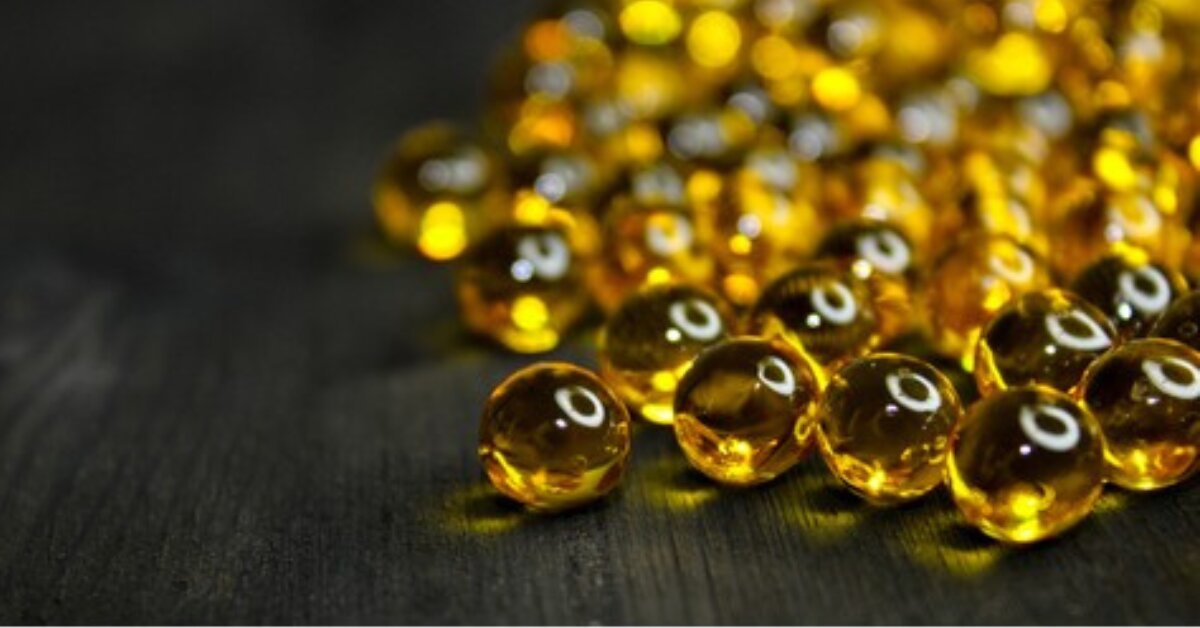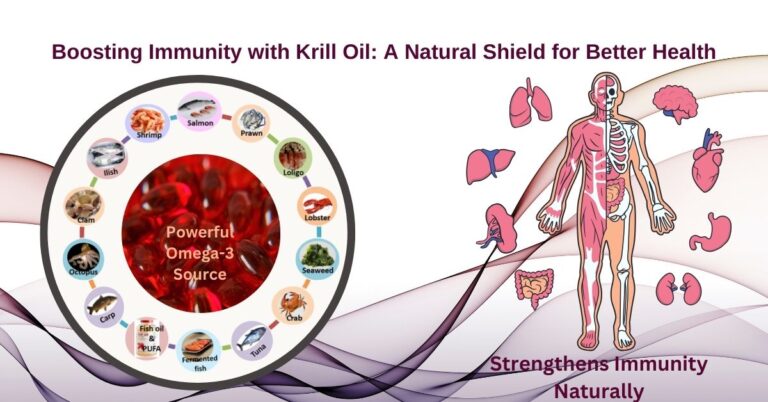A few years ago, my father was diagnosed with high cholesterol and hypertension. Like many, he tried to improve his heart health with medication and lifestyle changes, but unfortunately, we did not see the results we were hoping for. That’s when a friend suggested trying something unconventional krill oil. At first, I was skeptical. Could a small marine creature really make a difference in our health? However, after researching the benefits, we decided to give it a try.
To our surprise, after just a few months of adding krill to his daily routine, my father saw significant improvements in his cholesterol levels and overall heart health. His doctor even remarked on the positive changes. This got me curious how could such a small, often-overlooked source have such a big impact?
It turns out, krill oil is more than just a trend—it’s packed with powerful nutrients that can play a significant role in improving heart health. In the following sections, we’ll dive into the role of krill oil in improving health and explore how it could be the missing piece to your wellness routine.
Krill and it’s Benefits for Heart health

Krill is full of heart-healthy nutrients, protein, omega-3 fatty acids (EPA and DHA), essential amino acids, and additional vitamins and minerals. And most importantly, the phospholipids that help your body absorb these nutrients more effectively. Plus, it’s a natural source of a powerful antioxidant called astaxanthin.
Here are some benefits of using krill for heart health:
- By decreasing levels of bad (LDL) cholesterol and increasing levels of good (HDL) cholesterol, krill aids in making the cholesterol ratio more balanced.
- Defeats inflammation, a potential culprit in cardiovascular disease.
- Promotes healthy circulation by increasing blood flow.
- Shields heart cells from damage with its strong antioxidant properties.
- Supports flexible arteries, which is key to maintaining healthy blood pressure.
The Role of Krill in Improving Heart Health How It Helps
Krill works in multiple ways to protect your heart and improve how your cardiovascular system functions. Here’s a look at how it supports a healthy heart while others can’t:
Reduces Inflammation in Blood Vessels
Inflammation isn’t just a nuisance—it’s a key player in heart disease. When inflammation builds up in your blood vessels, it can cause them to narrow, making it harder for blood to flow and increasing the risk of heart attacks and strokes.
Krill can help with that. Rich in omega-3 fatty acids, krill helps reduce inflammation by calming the body’s inflammatory response. With less inflammation, your blood vessels can stay relaxed and open, allowing blood to flow more freely. This means your heart doesn’t have to work as hard to pump blood, which lowers the strain on your cardiovascular system.
With krill in your diet, you’re giving your heart the care it needs to stay strong, resilient, and ready to keep you healthy for the long run.
Lowers Bad Cholesterol and Boosts Good Cholesterol
Blood vessels are like busy streets. On one side, good cholesterol (HDL) helps keep things clear, while bad cholesterol (LDL) can create blockages. To keep the traffic flowing smoothly, reducing LDL and boosting HDL is key.
Krill, rich in omega-3 fatty acids, helps lower LDL cholesterol, preventing it from building up in the arteries. By clearing excess LDL, it ensures your arteries remain open, reducing the risk of heart disease. At the same time, krill promotes higher levels of HDL cholesterol, which works like a clean-up crew. HDL removes the excess LDL, further supporting clear arteries and healthy blood flow. The more HDL you have, the better protected your heart is from blockages and heart disease.
By balancing cholesterol levels, krill supports better cardiovascular health, helping your heart stay strong and efficient.
Improves Blood Circulation and Vessel Flexibility
Your arteries are like rubber hoses, carrying blood throughout your body. When they become stiff or clogged, it makes blood flow more difficult, forcing your heart to work harder. To keep everything flowing smoothly, your blood vessels need to stay flexible.
Krill’s omega-3 fatty acids help keep your arteries flexible by promoting their ability to expand and contract with ease. This flexibility allows blood to flow freely, reducing the strain on your heart. With Krill, you’re not just lowering cholesterol; you’re giving your heart the support it needs to pump blood efficiently and maintain healthy circulation.
By enhancing vessel flexibility, krill helps ensure that your heart can deliver oxygen and nutrients to your body without unnecessary resistance, supporting overall cardiovascular health.
Lowers Triglyceride Levels
Triglycerides are a type of fat found in your blood, and when their levels get too high, they can create serious complications for your heart. Imagine your bloodstream as a river. When there’s too much fat and cholesterol, it’s like debris clogging up the waterway. This makes it harder for the blood to flow smoothly, putting added pressure on your heart and increasing the risk of heart disease.
Krill helps clear this “debris.” The omega-3s in krill work by breaking down excess triglycerides, lowering their levels and allowing blood to flow more freely. By keeping triglyceride levels in check and maintaining a healthy balance of fats in the body, krill helps prevent the dangerous buildup that can lead to heart attacks and strokes.
Protects Against Oxidative Stress
Oxidative stress is like rust eating away at your heart and blood vessels. It happens when free radicals unstable molecules damage your cells, increasing the risk of heart disease. Over time, this oxidative damage can weaken your arteries, making it harder for blood to flow smoothly and putting extra strain on your heart.
Krill helps protect your heart from this damage. Packed with powerful antioxidants, especially astaxanthin, krill neutralizes free radicals before they can cause harm. Think of astaxanthin as a shield for your blood vessels, defending them from oxidative stress. By reducing this damage, krill helps maintain the strength and flexibility of your arteries, ensuring smoother blood flow and lowering the risk of heart-related problems like high blood pressure or atherosclerosis.
In short, krill’s antioxidant power helps protect your cardiovascular system, keeping your heart healthier for longer.
Supports Energy Production for Heart Function
Your heart is like an engine that never stops, and to keep it running smoothly, it needs a constant supply of energy. Without proper energy, the heart struggles to pump blood, leading to fatigue and health problems.
Krill supports energy production in your heart by providing essential omega-3 fatty acids and phospholipids. These nutrients are vital for the mitochondria, the “powerhouses” of your heart cells. Omega-3s help improve the efficiency of the mitochondria, allowing them to generate energy more effectively. Phospholipids, on the other hand, are key components of cell membranes, helping the heart’s cells function at their best.
With these nutrients, krill ensures that your heart cells have the fuel they need to produce energy, enabling the heart to pump efficiently and handle increased physical activity without strain. This support helps keep your heart strong and capable of performing its critical functions throughout the day.
Reduces Risk of Blood Clots
Blood clots are like roadblocks in your bloodstream. When blood cells stick together and form thick masses, they can block blood flow, leading to serious risks like heart attacks and strokes. Just as a smooth-flowing traffic system avoids gridlocks, your body needs proper support to keep blood flowing freely and safely.
Krill, packed with omega-3 fatty acids, plays a key role in this process. It helps reduce blood stickiness by preventing platelets (the cells that cause clotting) from clumping together. This prevents dangerous clots from forming, allowing blood to circulate more easily and reducing strain on your heart.
By supporting better blood flow, krill helps protect your heart and keep your cardiovascular system working as it should..
How Can We Use Krill to Show Our Heart Some Love?
So, you’re thinking about how to add krill into your diet for heart health? Well, you’re in luck! There are two simple ways to do it: you can enjoy krill meat directly, or opt for krill oil supplements. Both have unique benefits, but the choice is yours depending on what fits best with your lifestyle.
Adding Krill Meat to Your Diet
Krill meat is packed with omega-3 fatty acids, antioxidants, and essential nutrients that can work wonders for your heart. It’s an easy way to get the heart-healthy benefits of krill straight from the source. Not sure how to incorporate it? Here are a few ideas:
- Krill Salad: Toss some krill meat into your favorite salad for a protein-packed, heart-friendly meal.
- Krill Stir-Fry: Add it to a stir-fry with vegetables for a quick and delicious way to enjoy this nutrient-dense food.
- Krill as a Snack: If you like a savory snack, try krill meat with a sprinkle of seasoning, much like you would enjoy shrimp or other seafood.
Including krill meat in your meals a couple of times a week is a great way to support your heart health, giving your body a natural boost of omega-3s, which help reduce inflammation and improve blood flow.
What About Krill Oil?
If you’re not a fan of seafood or just prefer the convenience of a supplement, krill oil is a great option. Packed with the same heart-healthy omega-3s as krill meat, krill oil helps reduce bad cholesterol, lower triglyceride levels, and keep your blood vessels flexible. Just a daily supplement can offer similar benefits, improving circulation and supporting overall heart function.
Whether you prefer krill meat or krill oil, both options provide your heart with the nutrients it needs to stay strong and healthy. So, why not show your heart some love with this natural, nutrient-packed option?
Final Thoughts
Protecting your heart doesn’t have to be hard or overwhelming. Krill, when included in a healthy diet, can help keep heart health in check. From reducing inflammation in blood vessels to lowering bad cholesterol and boosting good cholesterol, krill provides a natural and effective way to support cardiovascular function. Its omega-3 fatty acids, antioxidants, and other vital nutrients work together to promote healthy blood circulation, reduce triglycerides, and protect against oxidative stress, all of which contribute to a healthier heart.
If you’re looking for a delicious and natural way to boost your heart health, consider adding krill meat to your diet. As a nutrient-packed source of omega-3s and antioxidants, our high-quality krill meat is a great addition to your meals, helping you take proactive steps toward better cardiovascular health.
Don’t wait show your heart some love today by incorporating krill into your diet!








